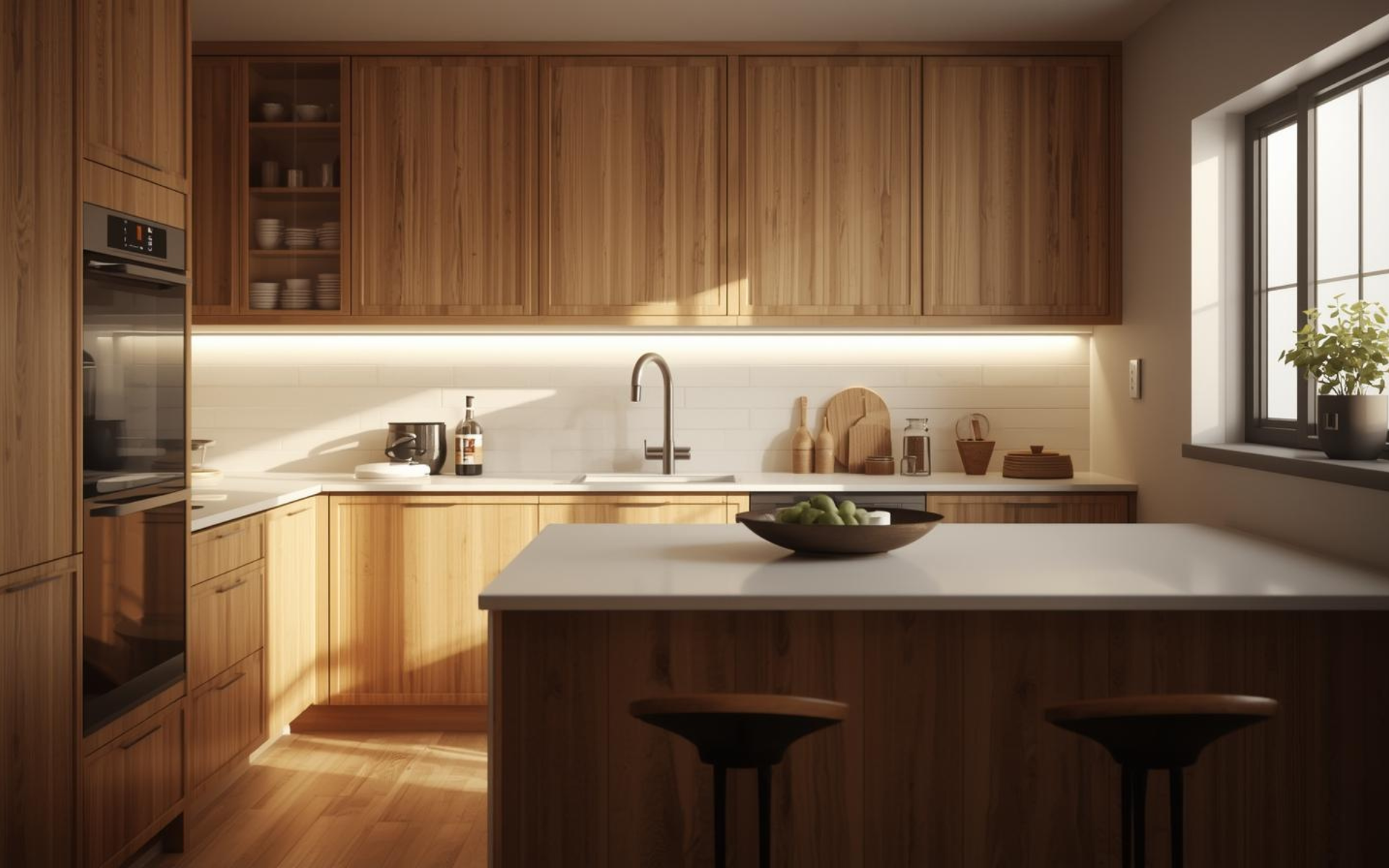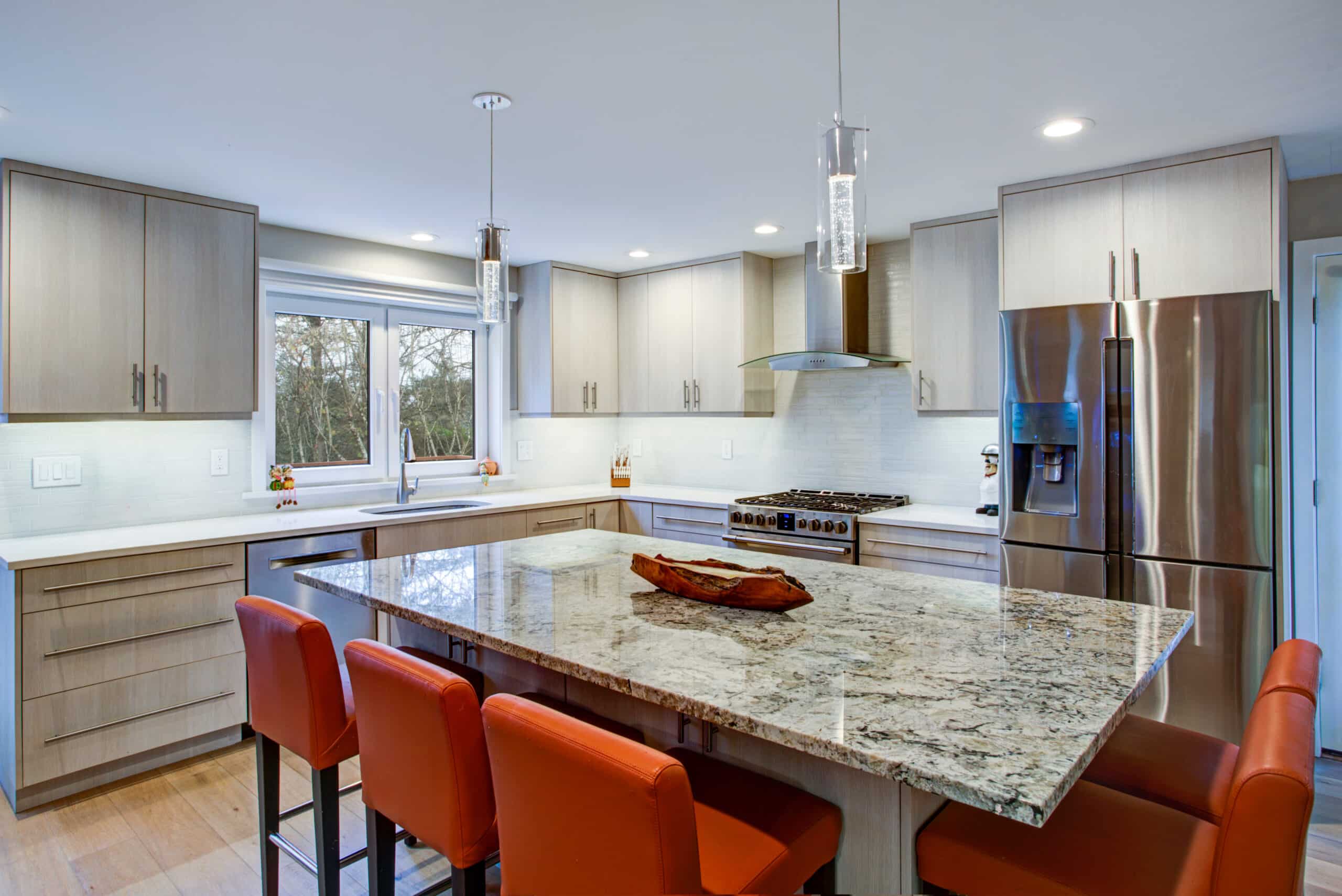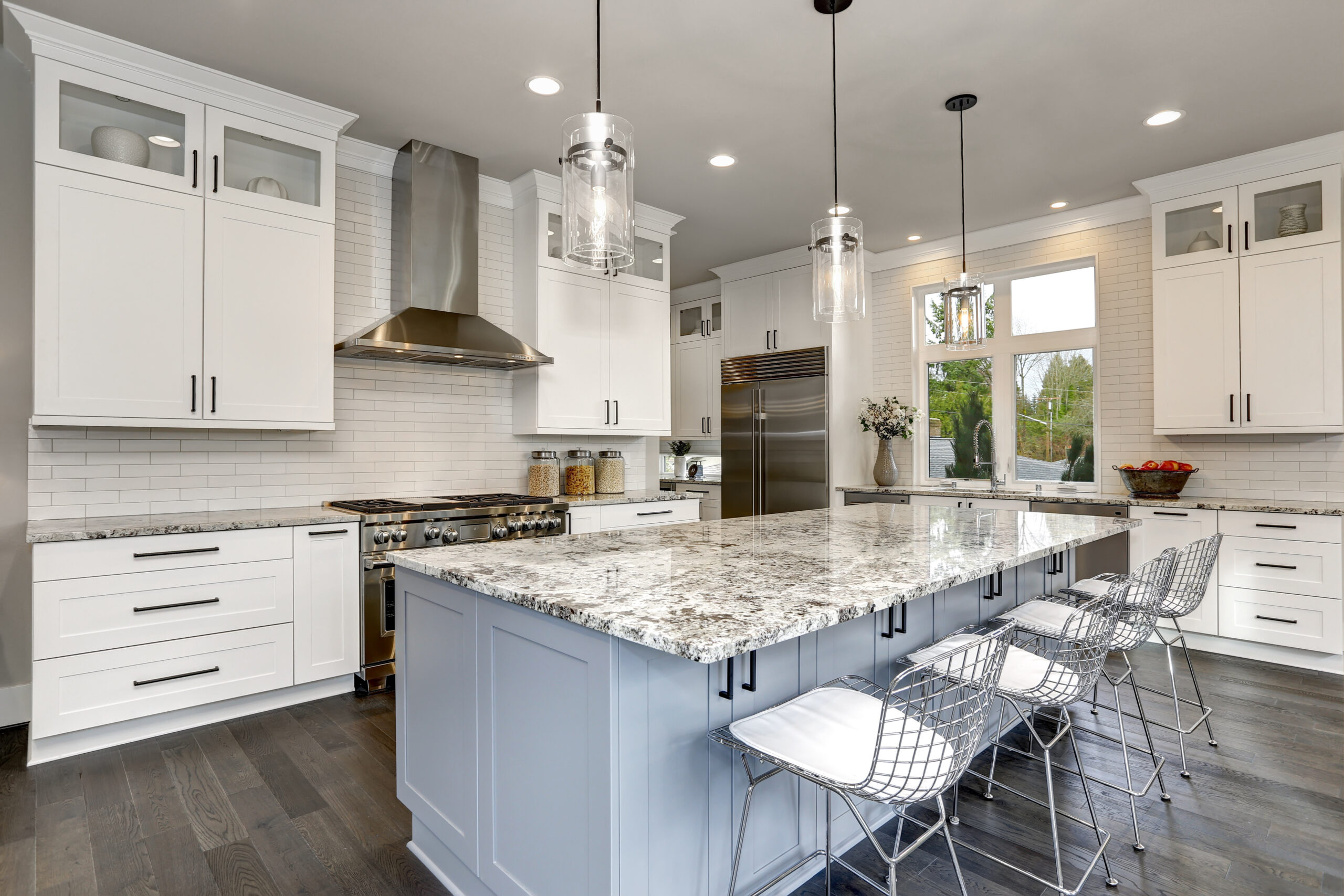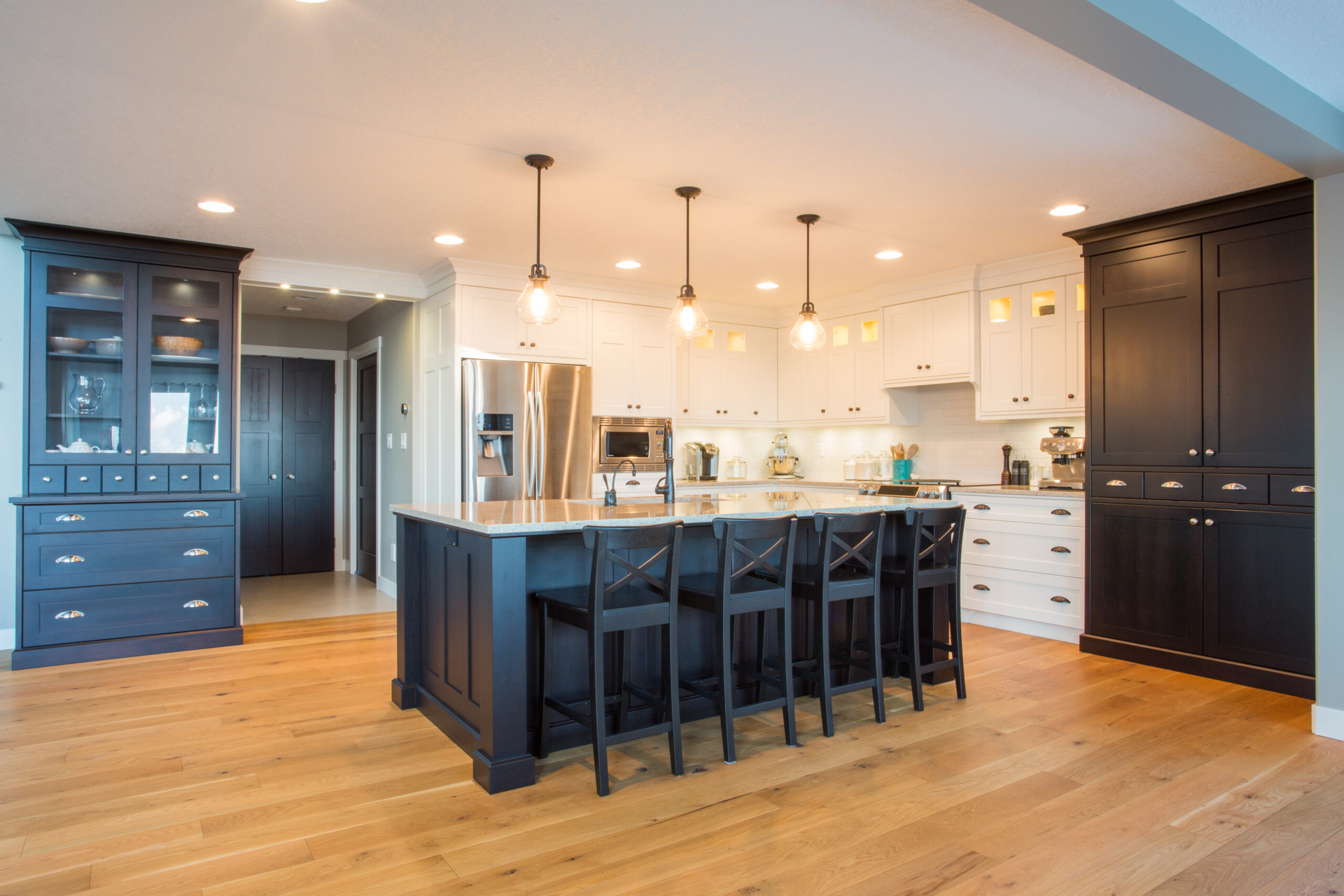Your home renovation starts with one critical decision: hiring a remodeling contractor who transforms your vision into reality. Feeling overwhelmed by this choice is normal. You scroll through endless online reviews, ask neighbors for recommendations, and still wonder if you’re making the right call. The contractor you select controls your budget, timeline, and final results.
A qualified kitchen and bathroom remodeling contractor brings knowledge of building codes, access to reliable subcontractors, and experience solving problems that hide behind your walls. This guide walks you through every step of finding, vetting, and hiring the professional who will handle your project with the expertise it deserves.
Why Most Remodeling Problems Start With Hiring a Contractor
Poor contractor selection leads to budget overruns, delays, and subpar work. According to Houzz, 25% of homeowners who experienced project problems traced them back to hiring the wrong professional. The right home remodeling contractors bring expertise, proper licensing, and accountability to your renovation.
Kitchen and bathroom remodeling projects involve plumbing, electrical work, structural changes, and design decisions. One mistake in any area creates problems that multiply. Licensed contractors understand building codes, permit requirements, and proper installation methods.
Which Type of Contractor Does Your Project Need
Different professionals handle different scopes of work. Know which type fits your needs before hiring a remodeling contractor.
General Contractors vs. Specialists
General contractors oversee entire home remodeling projects. They coordinate subcontractors, manage schedules, and handle permits. For full bathroom renovations or complete kitchen overhauls, a general contractor makes sense. These professionals take responsibility for the entire project from demolition to final cleanup.
Specialists focus on specific trades. A tile contractor excels at bath remodeling details. A cabinet installer knows kitchen layouts inside and out. For smaller projects limited to one aspect of your renovation, specialists often cost less and finish faster. They bring deep expertise to their particular craft.
Design-Build Firms
These companies combine design services with construction under one roof. You work with one team from concept to completion. The approach streamlines communication and reduces conflicts between designers and builders. The tradeoff comes in pricing, as these firms sometimes cost more upfront than hiring separate designers and contractors.
Find and Hire the Best Contractor for Your Next Project
Step 1: Define Your Project Scope Before Hiring a Remodeling Contractor
Contractors provide accurate estimates only when they understand your vision. Write down your goals:
Layout changes you want
New fixtures and appliances
Material preferences
Budget range
Timeline expectations
Take photos of inspiration from magazines or online. Measure your current space. The more details you provide, the better the proposals you receive.
Step 2: Research Local Licensed Contractors
Start your search in your area. Local professionals know regional building codes and have relationships with nearby suppliers.
Where to Find Qualified Candidates
Check these sources when hiring a remodeling contractor:
Angi (formerly Angie’s List) for verified reviews
Houzz for portfolio photos and ratings
Local building departments for licensed contractors
Friends and neighbors who completed similar projects
Professional associations like the National Association of Home Builders
Compile a list of five to seven candidates. More than that makes comparison difficult.
Step 3: Verify Credentials and Experience
Never skip this step. According to Angi, unlicensed contractors account for 40% of remodeling complaints filed by homeowners.
Essential Qualifications to Check
Before hiring a remodeling contractor, confirm:
Licensing: Every state requires contractors to hold valid licenses. Call your state licensing board to verify status. Ask for the license number and check it yourself.
Insurance Coverage: Request proof of both liability insurance and workers’ compensation. Your insurance company could hold you liable for accidents on your property if the contractor lacks coverage. Get certificate copies dated within the last 30 days.
References: Ask for three recent clients with similar projects. Contact them. Visit completed jobs when possible. Ask about communication, cleanliness, budget adherence, and problem resolution.
Years in Business: Established home remodeling contractors have track records. New businesses bring energy but less proven reliability. Balance your comfort level with their experience.
Step 4: Interview Your Top Candidates
Schedule in-home consultations with three to five contractors. Watch how they approach your space.
Questions to Ask During Consultations
Get specific answers about their process:
What is your typical timeline for kitchen and bathroom remodeling projects of this size?
How do you handle unexpected issues or change orders?
Who will supervise the daily work at my home?
Which subcontractors will you use, and how long have you worked with them?
What is your payment schedule?
Do you pull permits, or do I need to handle that?
How do you protect my home during renovation and remodeling work?
Pay attention to communication style. A contractor who listens well and explains clearly will make your project smoother.
Step 5: Review and Compare Detailed Proposals
Request written proposals from each candidate. Verbal estimates mean nothing when disputes arise. Compare proposals carefully, looking beyond the bottom line price.
What Every Proposal Should Include
A complete estimate breaks down labor costs, separated from materials. You need to see specific product brands and model numbers, not vague descriptions like “standard faucet.” The proposal should list project timelines with start and completion dates, payment schedules tied to milestones, warranty information, and cleanup responsibilities.
Beware of vague line items like “miscellaneous materials.” Those leave room for surprises when the bill comes. The most detailed proposal often comes from the most organized contractor. Organization during bidding predicts organization during construction.
Understanding Price Differences
The lowest bid tempts many homeowners. Resist that urge when hiring a remodeling contractor. Low bids often mean inferior materials, rushed work, hidden costs added later, or unlicensed subcontractors who cut corners. You get what you pay for in home remodeling projects.
The highest bid doesn’t guarantee quality either. Look for reasonable pricing with clear explanations for each line item. Ask about any significant price gaps between proposals. A contractor charging 40% more than others should explain what extra value they receive.
Step 6: Check References Thoroughly
Call every reference your top candidates provide. Most homeowners skip this step because they feel awkward. Don’t let discomfort cost you thousands in poor workmanship.
Ask previous clients direct questions. Did the project finish on time and on budget? How did the contractor handle problems that came up? Would they hire this team again? Did workers show up consistently or disappear for days? How thorough was the cleanup? Were there any liens or payment disputes?
Drive by completed projects if addresses are shared. See the quality firsthand instead of relying on photos that might show only the best angles. Look at trim work, tile alignment, and finish details that reveal craftsmanship levels.
Step 7: Review the Contract Before Signing
A solid contract protects both parties. Read every word before hiring a remodeling contractor. Don’t sign anything you don’t fully understand. Ask questions about confusing clauses. Have an attorney review contracts for projects exceeding $50,000.
Step 8: Protect Yourself During the Project
Signing the contract starts the work but not your vigilance. Stay involved without micromanaging the crew. Visit the site daily when you’re home. Look for progress and quality issues while they’re still easy to fix. Take photos to document the work. These images help if disputes arise or if you need to recreate the process for future reference.
Communicate regularly with your general contractor. Weekly check-ins work for most projects. Discuss completed work, upcoming tasks, and any concerns. Address small problems before they become major headaches.
Maintain a contingency fund of 15-20% for full bathroom renovations or kitchen projects. Surprises happen even with great planning. Old homes especially hide issues behind walls that nobody discovers until demolition.
Final Walkthrough Checklist
Before making the final payment:
Test all fixtures and appliances
Check that the finishes match the specifications
Verify cleanup is complete
Confirm permits are closed with passing inspections
Receive all warranties and product documentation
Get lien releases from subcontractors and suppliers
Only release the final payment when you’re satisfied. Most contracts withhold 10-15% until completion.
Working With Your Contractor’s Team
Your general contractor brings subcontractors for specialized work. Plumbers, electricians, tile setters, and cabinet installers each handle their portion. Meet key team members before work begins so you know who will be in your home.
Set ground rules early about working hours that respect your schedule, parking locations for trucks and equipment, and bathroom facilities for workers. Clarify which areas of your home remain off-limits. Discuss policies about smoking and music or radio volume.
Good home remodeling contractors maintain clean, professional job sites. Workers should respect your home like it’s their own. Daily cleanup prevents dust and debris from spreading throughout your house. End-of-project cleanup should leave your home ready to use.
Review Everything and Decide
You’ve researched, interviewed, and compared proposals. Now choose the contractor who will handle your kitchen and bathroom remodeling project.
Your kitchen and bathroom deserve expert hands. Mudosi Kitchen and Bath brings years of experience in home remodeling with fully licensed contractors who understand what homeowners need. We handle everything from initial design through final inspection, keeping your project on schedule and on budget. Our team communicates clearly, protects your home during construction, and delivers the quality you expect. Schedule your free consultation with Mudosi Kitchen and Bath today and start your transformation with professionals who treat your home like their own.














